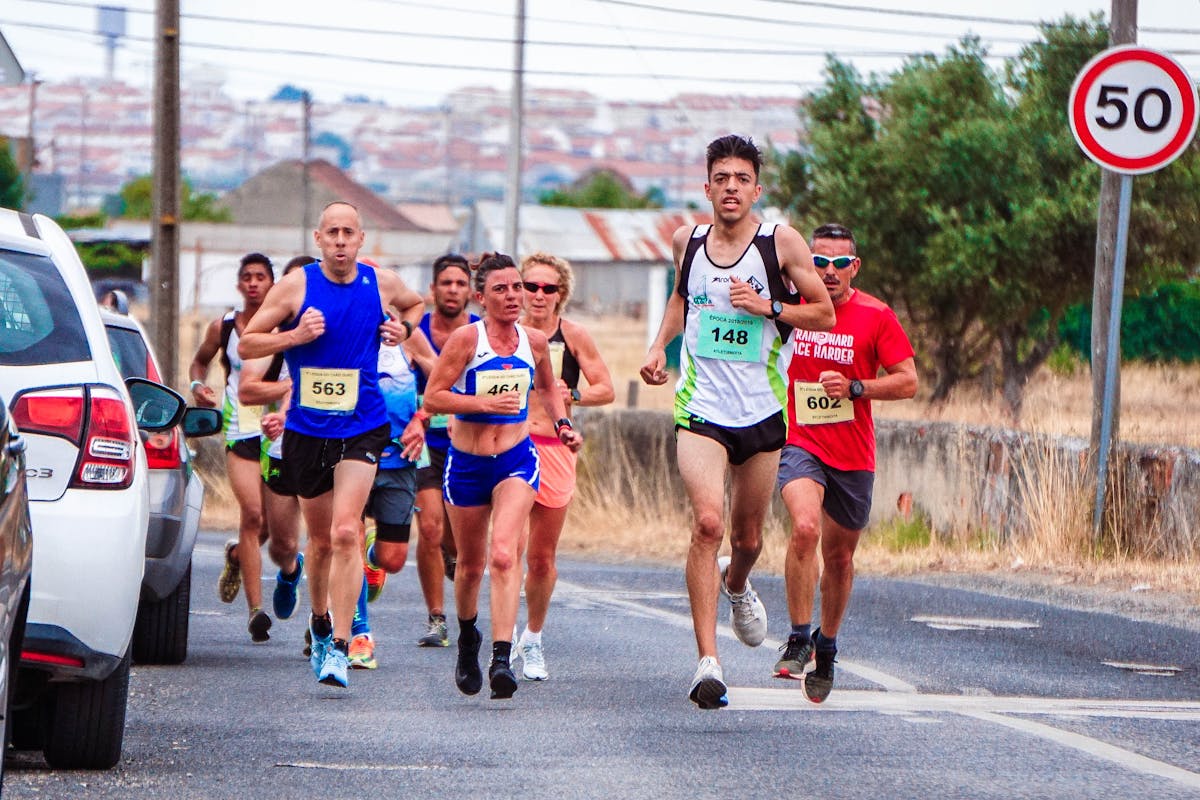Wage/Hour Violations at the Rock ‘n’ Roll Marathon?
Recent allegations of wage and hour violations at the Rock ‘n’ Roll Marathon have prompted a closer look into labor practices within the event organization. A range of issues, from unpaid overtime and wage disparities to insufficient breaks, have been reported, sparking questions about the treatment of workers in such high-profile events. This issue not only threatens the reputation of the marathon itself, but also raises broader concerns about labor rights enforcement in the entertainment and sports industries.
Understanding Wage and Hour Violations
In the domain of labor rights, wage and hour violations occupy a significant space, often casting a dark shadow over the dynamics of employment. These violations, particularly in the context of large events such as the Rock ‘n’ Roll Marathon, can result in serious wage disparities, undermining the fundamental labor rights of workers.
An investigative analysis of wage and hour violations reveals a complex interplay of factors. Employers may intentionally or unintentionally neglect to compensate workers for overtime, fail to provide legally mandated breaks, or misclassify employees to avoid providing benefits. This can result in a significant wage disparity between what workers are legally entitled to and what they actually receive.
The enforcement of labor rights, such as the right to fair wages and reasonable working hours, is critical in preventing these violations. It is also essential for fostering an equitable working environment where employees are valued and their rights are respected.
Therefore, understanding wage and hour violations is not merely a matter of labor law. It is a matter of social justice, economic equity, and respect for human dignity. As the Rock ‘n’ Roll Marathon continues to grow, its commitment to labor rights should remain steadfast, ensuring that all employees are compensated fairly for their hard work.
Marathon’s History and Popularity
The Rock ‘n’ Roll Marathon, since its inception, has shown substantial growth, attracting a vast number of global runners. Its popularity has not only surged among the athletic community but has also considerably impacted the local communities hosting the event. This section will explore the historical evolution of the marathon, its rising popularity, and the subsequent effects on the host communities.
Marathon’s Inception and Growth
Since its humble beginnings, the Rock ‘n’ Roll Marathon has experienced exponential growth, evolving into an international phenomenon. The marathon origins can be traced back to a simple, local event that has undergone a significant event evolution. It has not only expanded geographically but also regarding participation and cultural impact.
Investigation into the marathon’s growth reveals several key factors:
- The strategic incorporation of live music, which infused an element of entertainment into the strenuous physical activity. This unique feature distinguished the event from traditional marathons and contributed to its rapid popularity.
- Effective marketing and organization, which heightened its visibility and reputation, attracting participants and spectators from around the globe.
- The establishment of charitable partnerships, adding a philanthropic dimension to the event and appealing to the sense of social responsibility of runners and supporters.
- The selection of scenic routes, enhancing participants’ experience by involving them in the local culture and geography.
Each of these elements has played a vital role in the marathon’s expansion, transforming it from a local race into a global event that attracts thousands of runners and spectators each year.
Popularity Among Global Runners
Drawing upon its unique blend of entertainment and athleticism, the Rock ‘n’ Roll Marathon has garnered immense popularity among global runners over the years. The event’s distinct energy, combining exhilarating live music with the rigors of long-distance running, has resonated with a worldwide audience, fueling global participation and creating a diverse runner demographic.
In an investigation of the event’s participant composition, it was found that the demographic is highly varied, encompassing runners from different age groups, nationalities, and running abilities. A reflection of its global reach, the marathon has seen participation from over 30 countries, illustrating its status as an internationally recognized event.
Moreover, the marathon’s popularity is also reflected in the increasing participation rates. An in-depth analysis of data over the past decade shows a significant upward trend in the number of participants. This increase can be attributed to the event’s unique draw, merging the worlds of sports and music.
However, the marathon’s increasing popularity raises questions about its management, specifically regarding potential wage/hour violations. As the marathon continues to grow in popularity and size, these issues become even more significant to address.
Impact on Local Community
An extensive exploration into the local impact of the Rock ‘n’ Roll Marathon reveals a significant influence on the host communities. The marathon, with its history of popularity, has been a catalyst for community engagement and has stimulated local economies in ways that resonate beyond the event day.
The marathon has fostered:
- A sense of unity and pride within the community, as locals rally together to support, volunteer, and participate in the event.
- Economic growth, as the influx of participants and spectators boosts local businesses, from hotels to eateries and retail stores.
- Increased visibility and tourism for the host cities, often leading to a long-term positive impact on local economies.
- An opportunity for charitable fundraising, with many participants running for causes close to their hearts, hence creating a ripple effect of goodwill in the community.
However, the alleged wage and hour violations taint this positive image. If these allegations are proven, it could diminish community engagement and impact the local economy negatively. The community, the runners, and the local businesses all deserve a fair and ethical event that upholds the spirit of the Rock ‘n’ Roll Marathon.
Unveiling the Alleged Violations
The allegations of wage-hour violations at the renowned Rock ‘n’ Roll Marathon involve two primary issues: general wage discrepancies and unpaid overtime. These claims, if substantiated, could raise serious legal and ethical concerns, potentially undermining the event’s reputation. In the following discussion, we will scrutinize these allegations, independently examining each in light of legal standards and industry norms.
Examining Marathon Wage Issues
Several instances of alleged wage and hour violations marred the recent Rock ‘n’ Roll Marathon. The event, renowned for its lively atmosphere and large crowds, came under scrutiny as workers came forward with accusations that raise serious concerns about wage equity and worker rights.
The allegations ranged from unpaid hours to wage discrimination. The complaints presented are as follows:
- Workers reported being paid less than the agreed wage for their services during the marathon.
- Discrepancies were observed between the wages of different workers performing the same role.
- Some workers alleged that they were not compensated for extra hours worked beyond their scheduled shift.
- A number of workers did not receive their paychecks on the agreed-upon payday.
These allegations, if proven true, expose a severe disregard for wage equity and worker rights. Such reported inconsistencies not only tarnish the reputation of the Rock ‘n’ Roll Marathon but also pose serious questions about the treatment of workers in large-scale events. As these allegations unfold, it is critical that a thorough and objective investigation takes place to guarantee justice is served and future violations are prevented.

Unpaid Overtime Claims
Delving deeper into the alleged violations, it becomes clear that one of the most pervasive issues is that of unpaid overtime. This claim, centering on unpaid wages, has been echoing throughout the sports event industry and has recently found its way into the Rock ‘n’ Roll Marathon.
Thorough investigation reveals that employees, especially those in lower-tier positions, often worked beyond the regular 40-hour week without receiving their legally entitled overtime compensation. The violation of these overtime regulations is not only legally questionable but also ethically challenging. It seems that the organizers, in their quest for a successful event, may have overlooked or deliberately ignored the rights of their employees.
Documented evidence and testimonials from the staff suggest a systematic failure to meet overtime regulations. The employees were seemingly coerced into working extra hours without the promise of additional pay. This violation of labor laws not only infringes upon workers’ rights but also potentially undermines the reputation and integrity of the Rock ‘n’ Roll Marathon.
This investigation into unpaid overtime claims reveals a deeper, more systemic issue that transcends the boundaries of a single event, leaving the public to question the ethicality of labor practices within the wider sports event industry.
The Workers’ Side of the Story
How did the workers, the backbone of the Rock ‘n’ Roll Marathon, experience wage and hour violations? The narratives of these workers reveal a disheartening disregard for worker rights and ethical labor practices.
Their stories broadly fall into four categories, which are:
- Workers being paid less than the minimum wage
- Unpaid overtime despite working long hours
- Lack of rest and meal breaks
- Fear of retaliation if they reported the violations
These workers toiled relentlessly, ensuring the smooth operations of the marathon, yet their compensation did not match their efforts. Frequently, they were paid less than the minimum wage, a clear violation of their rights. The issue of unpaid overtime was rampant, with workers often exceeding their standard hours without proper remuneration.
Moreover, the workers’ right to rest and meal breaks, a fundamental aspect of ethical labor practice, was frequently ignored. The fear of retaliation, an intimidating factor, prevented them from reporting these violations, further exacerbating the problem.
The heart-wrenching stories of these workers underscore the need for immediate intervention and reform in labor practices at the Rock ‘n’ Roll Marathon. Their voices serve as a clarion call for justice and fair treatment in the workplace.
Legal Implications of the Violations
What are the legal consequences that could stem from these alleged wage and hour violations at the Rock ‘n’ Roll Marathon?
Given the gravity of these allegations, it’s essential to examine the potential legal implications. The Fair Labor Standards Act (FLSA) protects employee rights by setting standards for minimum wage, overtime pay, recordkeeping, and youth employment. Any violation of these standards can result in severe legal consequences including fines, penalties, and even imprisonment for willful or repeat offenders.
If the allegations prove true, the marathon organizers could face lawsuits for back pay, damages, and penalties. The plaintiffs, in this case, the employees, may also be entitled to liquidated damages equal to the amount of back pay owed, effectively doubling the amount recoverable. Additionally, violations of FLSA can attract civil penalties up to $1,100 per violation.
In addition to these federal implications, state laws also provide for hefty penalties on wage and hour violations. For instance, California law stipulates premium pay for missed meal and rest breaks, adding to the financial burden of the erring employer. Consequently, such violations not only tarnish the reputation of the event but also pose substantial legal and financial risks.
Marathon Organizers’ Response
While the potential legal implications paint a challenging picture for the marathon organizers, their response to these allegations is equally significant. The Rock ‘n’ Roll Marathon organizers have responded to the wage and hour violation allegations with transparency and a commitment to rectify the situation.
In the spirit of organizers’ accountability, they have taken the following actions:
- Instituted a thorough internal investigation to identify any systemic issues leading to these allegations.
- Pledged to rectify all proven wage and hour violations swiftly and fairly.
- Implemented stricter controls to guarantee compliance with wage and hour regulations moving forward.
- Reiterated their commitment to proper employee treatment and fair compensation.
These actions serve as a demonstration of the marathon organizers’ commitment to their employees and reflect their understanding of the gravity of the allegations. In a bid for transparency, the organizers have invited an independent body to monitor the changes being implemented, and they continue to cooperate with the authorities on this matter.
Their response, while commendable, is just the beginning. The ultimate resolution of these allegations will depend on the efficacy of these measures and the sincerity with which they are applied.
Impact on Future Rock ‘n’ Roll Marathons
The ripple effect of these wage and hour allegations may greatly impact future Rock ‘n’ Roll Marathons. Potential repercussions could spread across several areas, including runner experiences and community engagement, both of which form the backbone of the event’s success.
Runner experiences could be adversely affected due to potential staff shortages or lowered staff morale, which could lead to less efficient event organization. This may result in longer wait times for amenities, less efficient route management, and possibly a reduction in the overall quality of the marathon experience. This could discourage runners from participating in future events, leading to a decrease in event popularity and profitability.
Community engagement may also suffer due to the negative publicity surrounding the wage and hour violations. Residents may be less inclined to support or volunteer for a marathon that does not treat its employees fairly. This could potentially lead to reduced local sponsorship, decreased community involvement, and a less vibrant event atmosphere.
Ways to Prevent Similar Issues
One cannot ignore the importance of proactively addressing wage and hour violations to prevent similar issues from recurring at future Rock ‘n’ Roll Marathons. An investigative approach reveals critical pathways to achieve this, and it’s imperative to implement robust preventive strategies to guarantee fair compensation and proper workplace policies.
The first strategy to take into account is employee training. A well-trained workforce is less likely to commit, or tolerate, wage and hour violations. This should be complemented by:
- Compliance audits: Regular audits can help detect possible breaches of wage and hour laws, enabling organizations to rectify them before they become systemic.
- Legal education: Informing employees about their rights and obligations under labor law can empower them to prevent or report any violations.
- Transparent communication channels: Employees should feel comfortable reporting potential violations, therefore necessitating open and trusted communication channels.
- Transparency initiatives: Transparent practices regarding wage and hour policies can deter violations.
- Reporting mechanisms: Establishing clear and accessible reporting mechanisms can encourage employees to come forward with concerns, potentially averting violations.
Frequently Asked Questions
How Are Wages for Marathon Workers Typically Calculated?
Marathon worker wages are generally calculated based on hours worked, with potential variations due to worker classification. It’s essential to adhere to legal standards to avoid wage calculation discrepancies, ensuring fair compensation for all involved.
What Are the Standard Working Conditions for Marathon Staff?
Standard working conditions for marathon staff typically prioritize staff safety and delineation of volunteer roles. Staff often endure long hours in varying weather conditions, while volunteers are delegated tasks like water distribution and crowd management.
Is There a Union or Representative Body for Marathon Workers?
Union representation for marathon workers varies by region and event. Generally, workers’ labor rights are protected by existing employment laws, but a specific union for marathon staff is not universally established or recognized.
How Do These Alleged Violations Affect the Marathons Sponsorship Deals?
Alleged violations potentially jeopardize sponsorship deals due to reputational risk. Sponsors may reconsider association to avoid negative publicity, leading to significant financial repercussions for the marathon. It underscores the importance of ethical business practices in sports management.
Are There Other Marathons Facing Similar Wage/Hour Violation Allegations?
Investigations into marathon labor rights have disclosed potential worker compensation issues across various events. However, it remains unclear whether other marathons face allegations similar to those linked with the Rock ‘n’ Roll Marathon.






